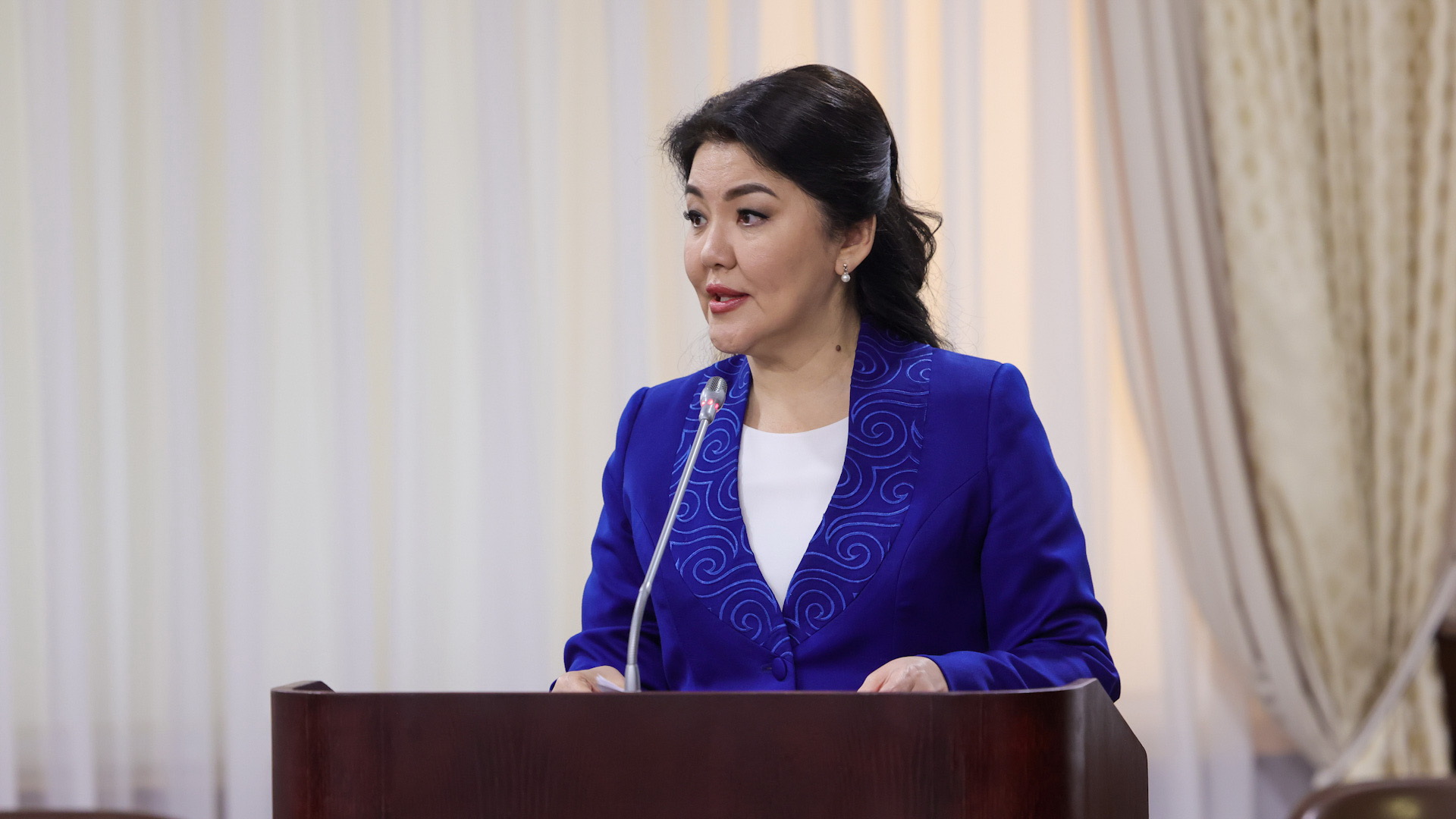09 January 2024, 15:00
 On the sanitary and epidemiological situation in the country at the Government session reported the Minister of Healthcare Azhar Giniyat.
On the sanitary and epidemiological situation in the country at the Government session reported the Minister of Healthcare Azhar Giniyat.
In Kazakhstan at the end of 2023, the main indicators of public health have improved. Thus, the total mortality rate decreased by 5.4% due to a decrease in mortality from circulatory diseases by 6.8%, respiratory diseases by 4.5%, cancer by 3%, tuberculosis by 22% and infectious diseases by 10%.
According to the specialized department, the epidemic situation in infectious diseases in the country remained stable. Thanks to the preventive and anti-epidemic measures taken, 20 dangerous diseases were not registered, including plague, cholera and poliomyelitis. A decrease was noted in 39 infections, including coronavirus, rotavirus and acute intestinal infections. There was an increase in eight diseases (measles, whooping cough, anthrax, etc.).
Now the next epidemic season of incidence of acute respiratory infections continues in the republic, which annually begins in October and lasts until May. In the epidemic season, as a rule, two waves of morbidity rise are registered: from October to November and from February to March. For prevention purposes, 2 million 400 thousand people from risk groups received flu vaccinations in 2023, which is 12% of the country's population with the WHO recommended at least 10%.
"In the current epidemiologic season, 2.4 million cases of acute respiratory viral infections have been registered, the morbidity is at the level of the last epidseason. Since November, the circulation of the influenza virus has been established. A total of 935 cases of laboratory-confirmed influenza have been registered since the beginning of the season, 85% of which are type A and 15% type B," Giniyat said.
The Ministry of Health has established circulation of non-influenza viruses, 41% of which are rhinovirus, 21% - MS virus and 14% - adenovirus. In general, since the beginning of the epidemic season, more than 31 thousand patients have been treated in hospitals, and more than 2 million patients have been treated on an outpatient basis. In total, about 10 thousand infectious beds have been deployed in the republic, of which about 3 thousand for children.
"Despite the completion of the COVID-19 pandemic, the Ministry continues to monitor the epidemiologic situation on CVI in the country and in the world. Thus, for the last month in 43 countries of the world the incidence of the disease has increased, in 36 countries there was a decrease in the incidence of the disease. The epidemiologic situation in the republic on coronavirus infection is stable. During the last 6 months from 100 to 400 cases were registered monthly, which confirms the year-round circulation of coronavirus among the population. Last year, 12,121 cases of COVID-19 were registered, compared to 2022, the incidence has decreased 35 times," the Minister said.
In 2023, the revaccination of vulnerable groups against COVID-19 continued in the country, covering more than 350,000 people. In December, only the Omicron strain was confirmed to be circulating (variant Arcturus 52%, Eris 2%, other variants 46%). About 4 thousand patients with COVID-19 were treated in hospitals, 2 people are being treated there today.
Azhar Giniyat dwelled in detail on the situation with measles. According to her, there have been three outbreaks in the republic over the past 15 years (in 2005, 2015, 2019). Another rise in morbidity began in 2023, at the end of which 29,648 cases of measles were registered. And while 80% are patients under 14 years of age, 89% of them are unvaccinated children.
The increase in measles incidence in December was noted in 11 regions. The tendency to stabilization was observed in Aktobe, Kyzylorda, West Kazakhstan Karaganda, Turkestan regions and Zhetisu region. Decrease is observed in 3 regions - in Shymkent, Zhambyl region and Ulytau region.
According to the Minister, to stabilize the situation on measles last year was carried out routine vaccination, which covered about 700 thousand children aged 1 year and 6 years old.
"Taking into account the registration of measles morbidity among unvaccinated children in September 2023, funds were allocated from the Government's reserve.and 1.5 million doses of vaccine against measles, rubella and mumps were purchased. Since November, additional vaccination against these infections has been carried out in the Republic. As of today, more than 930 thousand people have been vaccinated within the framework of additional vaccination, 62% of people are covered. We vaccinate more than 20 thousand people daily. Additional immunization will last until the end of January," Azhar Giniyat said.
Positive dynamics of immunization is observed in most regions. Thus, in Zhetisu region, Kyzylorda, Turkestan regions and Shymkent it covered more than 70% of the subject contingent. At the same time, low levels of coverage (less than 55%) are noted in 7 regions: Karaganda, Atyrau, Kostanay, Pavlodar, Mangystau, West Kazakhstan regions and Astana.
"The increase in the incidence of vaccine-preventable infections is directly related to the norms of the law of 2015, allowing parents to refuse to vaccinate their children. Because of this, after 5-7 years, the non-immune layer increased. According to data, today about 800 thousand children under 6 years of age are not immunized and are not protected from diphtheria, polio, tuberculosis and other dangerous infections. In this regard, the Ministry together with local executive bodies, along with the scheduled vaccination within the national calendar, will carry out comprehensive work on additional vaccination of children not covered by scheduled vaccinations," the Minister said.
Summarizing her report, Azhar Giniyat noted that in order to ensure a stable epidemiological situation in 2024, a number of tasks will have to be accomplished, including:
Stay updated about the events of the Prime minister and the Government of Kazakhstan - subscribe to the official Telegram channel
Subscribe